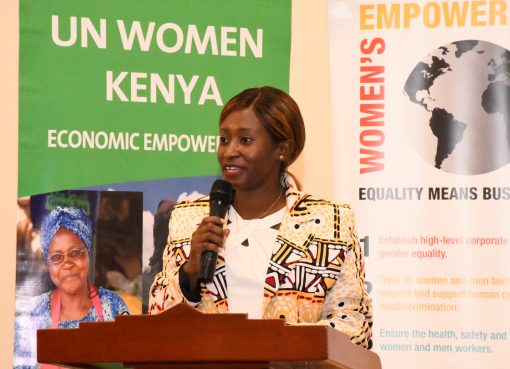Kwale Governor Fatuma Achani has stated her administration’s commitment to achieving its healthcare agenda by prioritizing Universal Health Coverage (UHC).
Achani says the UHC rollout will in the long run ease access to health services for people at the bottom of the socio-economic pyramid.
She also declared that the county government would prioritize investments in the health sector to improve the well-being of the residents.
The Governor said she is in full support of the UHC program noting that good health is essential for the socio-economic well-being of all the 47 counties.
Achani accompanied by her Deputy Chirema Kombo said this during a mass registration of UHC services at Chale dispensary, Kinondo ward of Msambweni sub-county.
She says the mass registration of universal health coverage through the National Health Insurance Fund (NHIF) is being conducted throughout the 20 electoral wards in a bid to target residents at the grassroots and assist them to benefit from healthcare services.
“We want to create awareness to our people in acquiring health services and for that we urge the people to register for UHC to get enhanced medical cover through NHIF,” said Achani, adding that she has a vision and commitment to revamping the county’s health sector.
She said with the operationalization of the UHC, primary healthcare facilities will no longer suffer from shortages of staff, essential drugs, and basic medical equipment as has been the case in the past.
Stakeholders contend that the success of the UHC program depends on strengthening health systems, robust financing, and the reduction of out-of-pocket health expenditures for households.
Governor Achani further said that in the 2023/2024 budget, the devolved government sought to increase the allocation of funds for health and nutrition to ensure the well-being of the people.
She says the devolved unit is continuing to increase and optimize investment in healthcare with the total budget allocation to health currently averaging at about 30 percent.
Achani says she is fully aware of the impact of poor health funding on achieving UHC and is determined to allocate adequate funds for rural healthcare delivery in the county.
She further emphasized the need for residents to seek medical assistance in dispensaries and health centers as the services and medical drugs are offered free.
Achani said her administration had embarked on critical and sustainable measures toward addressing the challenges of the public primary healthcare institutions in the county.
“We are putting in place measures towards quality healthcare delivery by posting adequate healthcare workers and equipping the over 300 dispensaries and health centers across Kwale with sufficient drugs,” she said.
The UHC program is championed by the national government and is being rolled out across the 47 devolved units.
The county boss says the national government seeks to accelerate the achievement of UHC and bridge the inequity gap in the provision of health services in the country.
“As a devolved government we are cognizant of the fact that the progress of any country is critically tied to the health, safety, and wellbeing of its people,” she said, adding that health is a basic human right.
She says the coastal county has prioritized the health sector in the provision of medical services, healthcare infrastructure, and personnel.
Governor Achani at the same time charged healthcare workers to be diligent and more committed in discharging their duties.
She says the county expects medical personnel to be diligent in their work in a bid to boost healthcare delivery in the county.
Achani has tasked the healthcare workers to ensure improved health service delivery to the people especially during public health crises and outbreaks of infectious diseases.
She has affirmed that the county government remains committed to ensuring best practices in healthcare delivery across the region, especially through capacity building for its health workforce.
By Hussein Abdullahi





